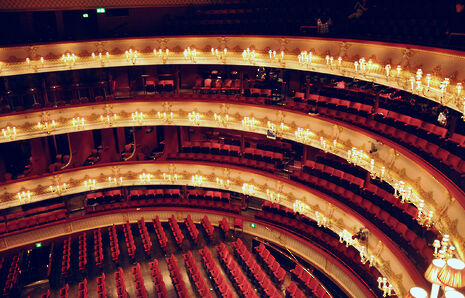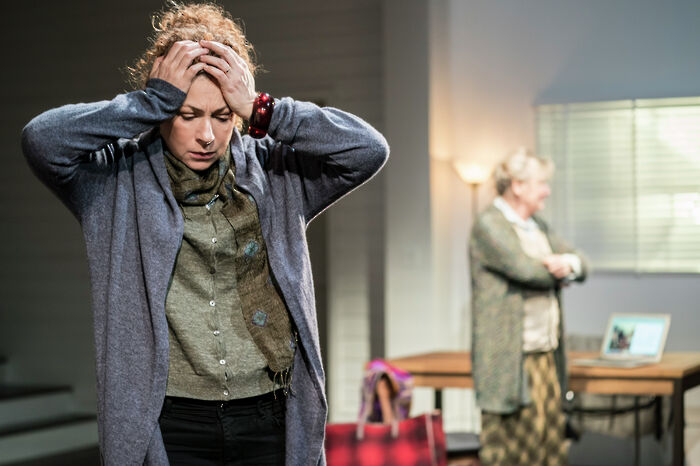Tosca review
The Royal Opera House’s revival of Jonathan Kent’s production excites without taking any risks

There has barely been a season at the Royal Opera House in the past few decades where Tosca hasn’t featured, and given the reception it regularly gets it’s not hard to see why. The trio of major roles have a show-stopping aria apiece, and via love and betrayal all of them end up dead – it’s the opera experience distilled and thrown in your face by Puccini's score (and Alexander Joel's conducting) with searing brassy thrill.
Vittorio Grigòlo’s Cavaradossi injects his scenes with swagger and ebullience
The late Paul Brown’s sets are thoroughly traditional, and this is to their benefit as much as to their detriment. Baron Scarpia’s (Bryn Terfel) dining table is pushed off to the side of the stage in the second act, and with the door to the torture chamber at the other end and looming columns behind, Tosca (Kristine Opolais) is framed perfectly for her great aria, Vissi d’arte, of which Opolais gives an arresting performance but one which opts more for vitriol than for the pathos that the words suggest.
Terfel’s own starring moment, the Te Deum that concludes the first act, is sung with menace indeed – plosives are spat and sibilants are hissed – but a menace which betrays an intimate acquaintance with the role and therefore feels somewhat overly polished. Mark Henderson’s lighting in this scene is particularly striking, the white costumes of the choir in the upper half of the stage drenched in light while Terfel scowls around beneath in the semi-darkness reveling in his diabolical plans.
Vittorio Grigòlo’s Cavaradossi injects his scenes with swagger and ebullience fitting of the artist-cum-political-dissident, and his E lucevan le stelle in the final act swells to its climax with powerful restraint, avoiding the trap of turning up the heat too fast. Angelotti’s role in the proceedings as furtive prison-escapee is small, but Michael Mofidian’s down-to-earth bass performance complements Grigòlo’s soaring tenor in their duet in the first act, anchoring attention firmly on the escape at hand.
This production (directed by Jonathan Kent and revived by Andrew Sinclair) does have an air of settling for the familiar over breaking any new ground. The sets are towering and loom intimidatingly, but feel rather tired and a little predictable. The conservatism is understandable – it is especially risky to mix things up when dealing a well-established fan-favourite like Tosca. But the casting suffers a similar issue: there is barely a baritone in the business more closely associated with the role of Scarpia than Terfel, but he has refined his performance to the point where the few creepy gestures he throws in struggle to make the role as repulsive as it can be, and there is a sense that he is now able to get by almost on autopilot. His singing, of course, is second-to-none, and his regular appearances as Scarpia are no coincidence.
With a cast like this one and a production which, though not going off in any particularly new or unexpected directions, does every justice to the story it tells, audiences are guaranteed to like what they see and hear. It is impossible to go very far wrong with this production, perhaps more because of its conservatism than in spite of it.
 News / Hundreds of Cambridge academics demand vote on fate of vet course20 February 2026
News / Hundreds of Cambridge academics demand vote on fate of vet course20 February 2026 News / Judge Business School advisor resigns over Epstein and Andrew links18 February 2026
News / Judge Business School advisor resigns over Epstein and Andrew links18 February 2026 News / University Council rescinds University Centre membership20 February 2026
News / University Council rescinds University Centre membership20 February 2026 News / Petition demands University reverse decision on vegan menu20 February 2026
News / Petition demands University reverse decision on vegan menu20 February 2026 News / Caius students fail to pass Pride flag proposal20 February 2026
News / Caius students fail to pass Pride flag proposal20 February 2026










